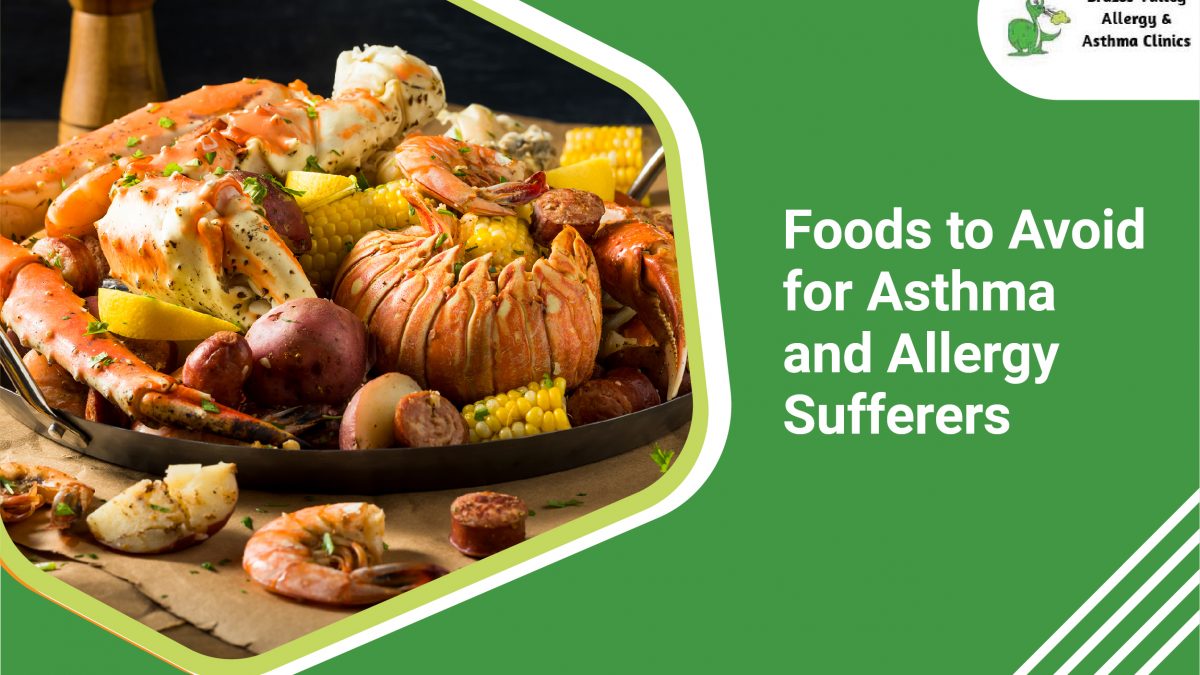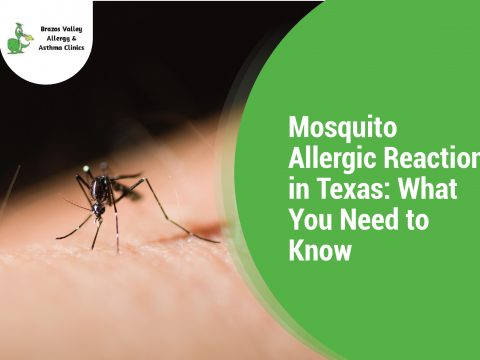- 979-485-9287
- office@bvallergy.com
-
 979-251-7804
979-251-7804
Foods to Avoid for Asthma and Allergy Sufferers

Common Allergies and How to Manage Them
May 3, 2023
Asthma and Allergy Triggers to Avoid During Spring Season
May 31, 2023As an asthma and allergy sufferer, you know the importance of being careful about what you eat. Certain foods can trigger your symptoms and make your condition worse. In this article, we’ll go over the top foods that trigger asthma or allergies.
We’ll also talk about some healthier alternatives so you can still enjoy delicious food without compromising your health.
Living with asthma or allergies can be challenging. Still, the good news is that you can manage your symptoms by making lifestyle changes, including your diet. It’s essential to avoid certain foods that can trigger your asthma or allergies, such as dairy products, tree nuts, and shellfish. You can feel better and reduce your symptoms by avoiding these foods and making healthier choices.
What is Asthma?
To better understand this blog, let’s define what asthma is first. Asthma is a chronic respiratory disorder causing inflammation and airways narrowing, making breathing difficult. It can cause wheezing, coughing, chest tightness, and shortness of breath. It can be triggered by asthma, food allergy, exercise, and respiratory infections.
Asthma treatment typically includes medications such as inhalers, steroids, and lifestyle changes to avoid triggers and improve lung function.
What Are Allergies?
Now that you know what asthma is, let’s now define allergies. Allergies occur during an overreaction of the immune system to ordinarily harmless substances. These substances, known as allergens, can include pollen, animal dander, certain foods, and medications. If you have allergies, your immune system produces antibodies that cause histamine production and releases them, leading to symptoms such as runny nose, sneezing, itchy eyes, and skin rashes.
Treatment for allergies typically includes medications such as antihistamines and nasal corticosteroids and avoiding exposure to known allergens.
What is Food Allergy?
A food allergy occurs when your immune system reacts to certain proteins in food, mistaking them as harmful. These proteins, known as allergens, trigger an immune response ranging from mild symptoms like an itchy mouth or a few hives to more severe reactions like throat tightening and difficulty breathing. In rare cases, anaphylaxis, a severe and potentially life-threatening allergic reaction, can occur suddenly. Recognizing the signs and seeking immediate medical attention if experiencing anaphylaxis is important.
According to Food Allergy Research & Education, approximately 32 million Americans are believed to have food allergies, with 5.6 million children under 18. This translates to one in 13 children or roughly two children in every classroom.
Foods to Avoid with Asthma and Allergies
In the following section, we will discover the foods that may trigger an asthma attack or an allergic reaction. You can also read more by clicking this link.
-
Dairy Products
Dairy products like milk, cheese, and yogurt can worsen asthma by increasing lung mucus production. Some people with allergies may also be allergic to casein, a protein found in milk, which can cause an allergic reaction.
-
Nuts
Nuts are a common allergen and can cause severe allergic reactions in some people. They can also trigger asthma symptoms, especially if you have a nut allergy.
-
Shellfish
Shellfish, including shrimp, crab, and lobster, can cause allergic reactions in some people. Allergic reactions range from mild to severe, including symptoms like hives, swelling, and difficulty breathing. Avoid eating shellfish if you have asthma and food allergies.
-
Soy
Soy is a versatile ingredient in many processed foods, including soy milk and tofu. Some people with asthma or allergies may be allergic to soy and should avoid it.
-
Wheat
Wheat is a common allergen and can cause allergic reactions in some people. It’s also one of the most common components in many processed foods, so reading food labels is essential.
-
Eggs
Eggs are another common allergen and can cause allergic reactions in some people. They can also trigger asthma symptoms, so it’s best to avoid them if you’re allergic.
-
Citrus Fruits
Citrus fruits like oranges, lemons, and grapefruits can trigger asthma symptoms in some people. They contain a compound called histamine, which can cause lung inflammation.
-
Processed Foods
Processed foods like chips, cookies, and candy often contain preservatives and additives that can trigger asthma symptoms. They’re also often high in salt, sugar, and unhealthy fats, which can contribute to other health problems. Avoid or minimize the consumption of processed foods to prevent asthma food triggers. Moreover, dried foods and vegetables are considered the worst foods for asthma.
Healthier Alternatives
You can eat healthier alternatives to avoid accidental exposure to allergens and reduce the risks of an asthma attack or an allergic reaction. Below are some of the best food alternatives that you can choose.
-
Almond Milk
If you’re allergic to dairy, try almond milk as a dairy-free alternative. It’s low in calories and contains vitamins and minerals that can help support your immune system. Almond milk is an ideal inclusion for asthma diets and if you have allergies.
-
Quinoa
Quinoa is a nutritious grain high in protein and fiber. This healthy ingredient is also gluten-free, making it a great alternative to wheat-based products.
-
Fresh Fruits and Vegetables
Fresh fruits and vegetables are low in calories and provide vitamins and minerals. They can help support your immune system and reduce inflammation in the body.
-
Lean Protein
Foods with natural protein sources like chicken, fish, and turkey can provide essential nutrients without triggering asthma or allergies.
Conclusion
If you have asthma or allergies, you must eat carefully. Avoiding trigger foods and making healthier choices can reduce your symptoms and improve your overall health. Remember to read food labels carefully; if you’re unsure about a particular food, it’s always best to avoid it.
FAQs To Help You Understand Asthma and Allergy Triggers
Should I avoid all nuts if I have asthma or allergies?
If you have a nut allergy, avoiding all nuts is best. If you’re unsure if you’re allergic to a specific nut, it’s best to talk to your allergist.
Can I still enjoy delicious food if I have asthma or allergies?
Yes, absolutely! While there are certain foods to avoid, there are plenty of delicious and healthy alternatives that you can enjoy. You can still enjoy various tasty and nutritious foods by being mindful of your diet and making healthier choices.
Can Food Allergies Cause Anaphylaxis?
Yes. Some foods can cause anaphylaxis, like nuts or shellfish. In this situation, going to the nearest hospital or emergency room is best. The common symptoms of anaphylaxis are shortness of breath, lightheadedness, fainting, palpitations, and a sudden drop in blood pressure.
Enjoy Eating Your Favorite Foods Without Asthma and Allergies
If you want to discover common food allergies and how to treat them efficiently, consult Dr. Jantzi – our board-certified allergist and immunologist in the Brazos Valley area. He provides safe and efficient treatment options for asthma and allergy using evidence-based methods. He cares for all his patients with allergies, asthma, and immune system illnesses.
Book an appointment by clicking this link.




